Podiatrist Tips
Tips from Podiatrists
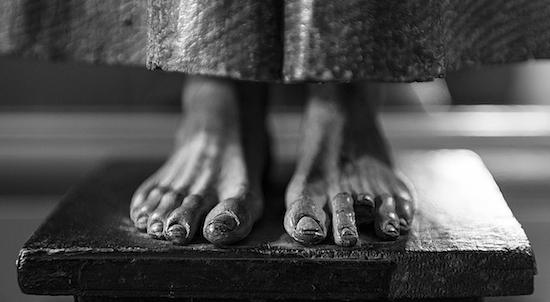
When should you go to a podiatrist?
Podiatrists diagnose and treat anything related to your feet, ankles, or toes, so any medical issue in that area is in their realm. Whenever you have something interfering with your daily activity in that area, you should go see a podiatrist. You don’t need to be diabetic, have an injury, or anything like that.
Just having a stubborn case of athlete’s foot, or frequently rolling your ankle – even if you haven’t broken it – could be something a podiatrist could help with. If you have any problem that interferes with your work, that would be a great indication that you need to go make an appointment with a professional.
How do you get rid of callouses from running?
First, remember that callouses are caused by friction, and they’re not all bad. They have a purpose: they protect your feet!
But if you do want to get rid of them, try using a pumice stone (only a few dollars on Amazon) right after showering, when your feet are softer. Urea Cream is also good for softening foot callouses. Using a knife to cut them off is not such a good idea.
How do I find the right type of athletic shoe?
If you go to a podiatrist (find one here, he or she can give you a biomechanics evaluation that will analyze your foot type. Then they can give you a recommendation for a specific type of shoe to pair with your feet.
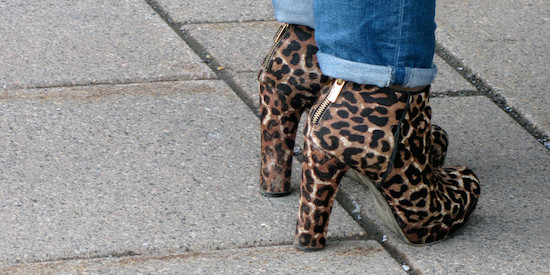
Are high-heeled shoes harmful?
Trying to cram your feet into ridiculous shoes that don’t fit at all can possibly cause dislocated toes or even neuromas (a growth or tumor of nerve tissue). But wearing reasonably sized high heeled shoes occasionally shouldn’t cause any major problems, although it might not be particularly comfortable.
Also, note that high heeled shoes or any other poorly fitting shoes do not cause bunions. Bunions can be found even on people who’ve gone their entire lives without wearing shoes at all.
Any tips for helping with plantar fasciitis?
Night splints can help. Getting a really hard pair of orthotic inserts can also help by keeping your plantar fascia muscles stretched out all day. Hard shoes that put pressure on the arches of your feet might also help. Along the same lines, avoid really flexible shoes, like Nike Frees. If you can bend the shoe in half, it’s not helping your foot.
How much do orthotic inserts cost?
Shoe inserts can cost anywhere between $40 at a running or sporting goods store up to around $400 after insurance for custom made inserts, which are much higher quality.
If I had to suggest a brand of off-the-shelf insoles, it would be Superfeet brand, but that’s not an official endorsement. Also, remember that inserts should be firm. If they’re soft and feel like jelly, they’re providing cushioning, not support for your feet.
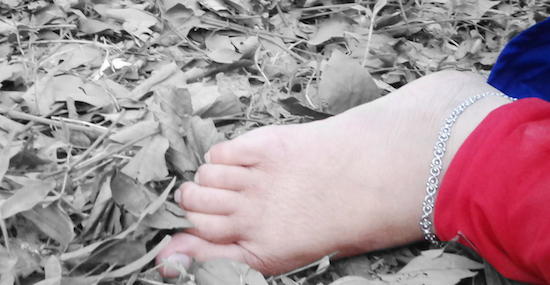
How do I prepare to see a podiatrist?
Just like before you see any other doctor, prepare a list of your symptoms and questions, check with your insurance company, and get all your medical records and any test results from other doctors.
You can always bring someone with you to an appointment, and of course, know what medications you’re currently taking. Also, it’s a good idea to bring your shoes with you, especially if your question is related to exercise or running.
How do I choose socks?
The best socks for your feet are made of materials that will wick moisture away from sweaty feet, not cotton. Cotton isn’t king anymore, at least in socks! Also, make sure your socks aren’t too small or tight, or they’ll cause blisters, just like poorly-fitting shoes.
What’s the difference between a podiatrist and a pedicurist?
Easy! A podiatrist is a medical doctor specializing in feet. They’re board-certified and have had many years of training, like any other medical professional.
A pedicurist is works in beauty, not medicine. They trim, file, and paint nails, none of which podiatrists will do, but they have no medical training and aren’t qualified to diagnose anything or give medical advice.
Sources: Dr. Nakra Board Reddit AMA Anonymous Podiatrist AMA APMA.org Reader’s Digest
Images from 500px.com licensed under CC-BY As always, note that I am not a doctor and am not qualified to give any medical advice. The intent of this post is to help you determine when to get medical advice from a qualified professional. Do your own research. I’m not liable for anything you do.
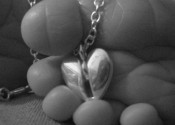
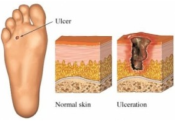

My feet have been hurting for weeks now. I do weir high-heels for work because I think they look professional. Thank you for sharing that high-heels can be worn occasional, just not all the time. I believe I will start wearing my heels less and look into going to a podiatrist. I just want my feet to feel normal again.